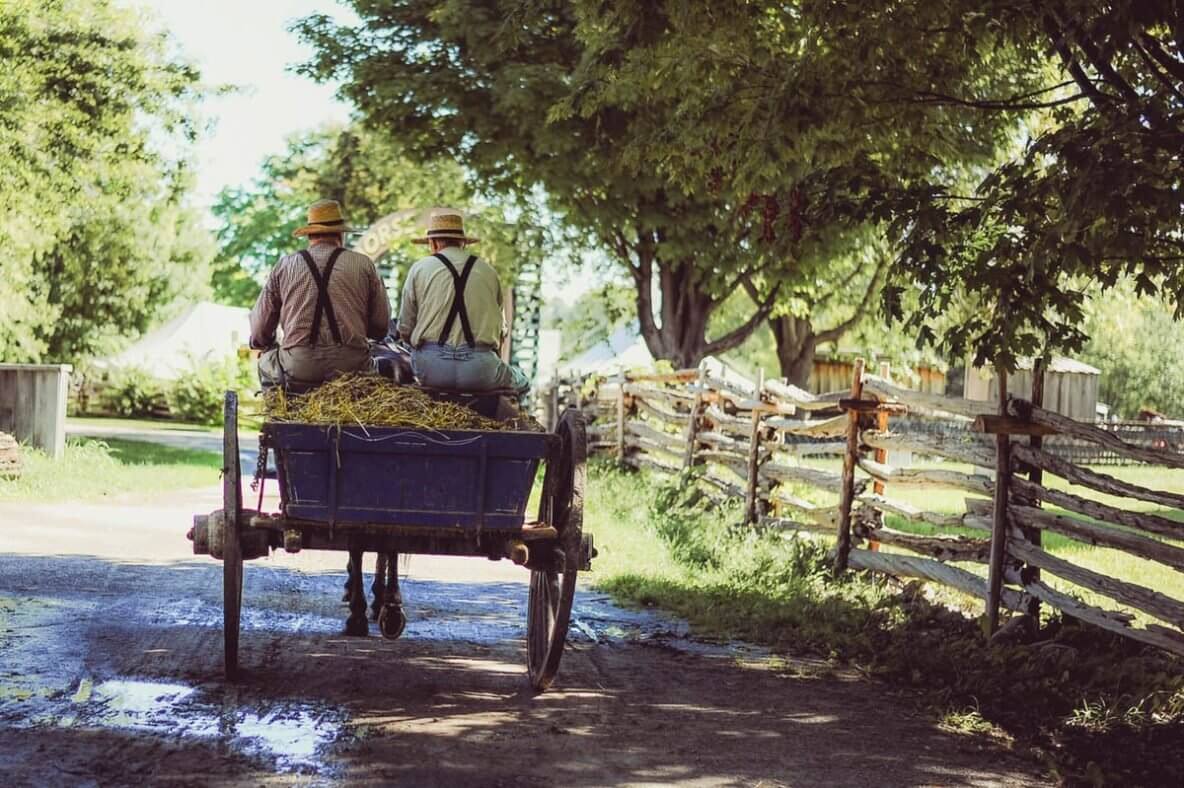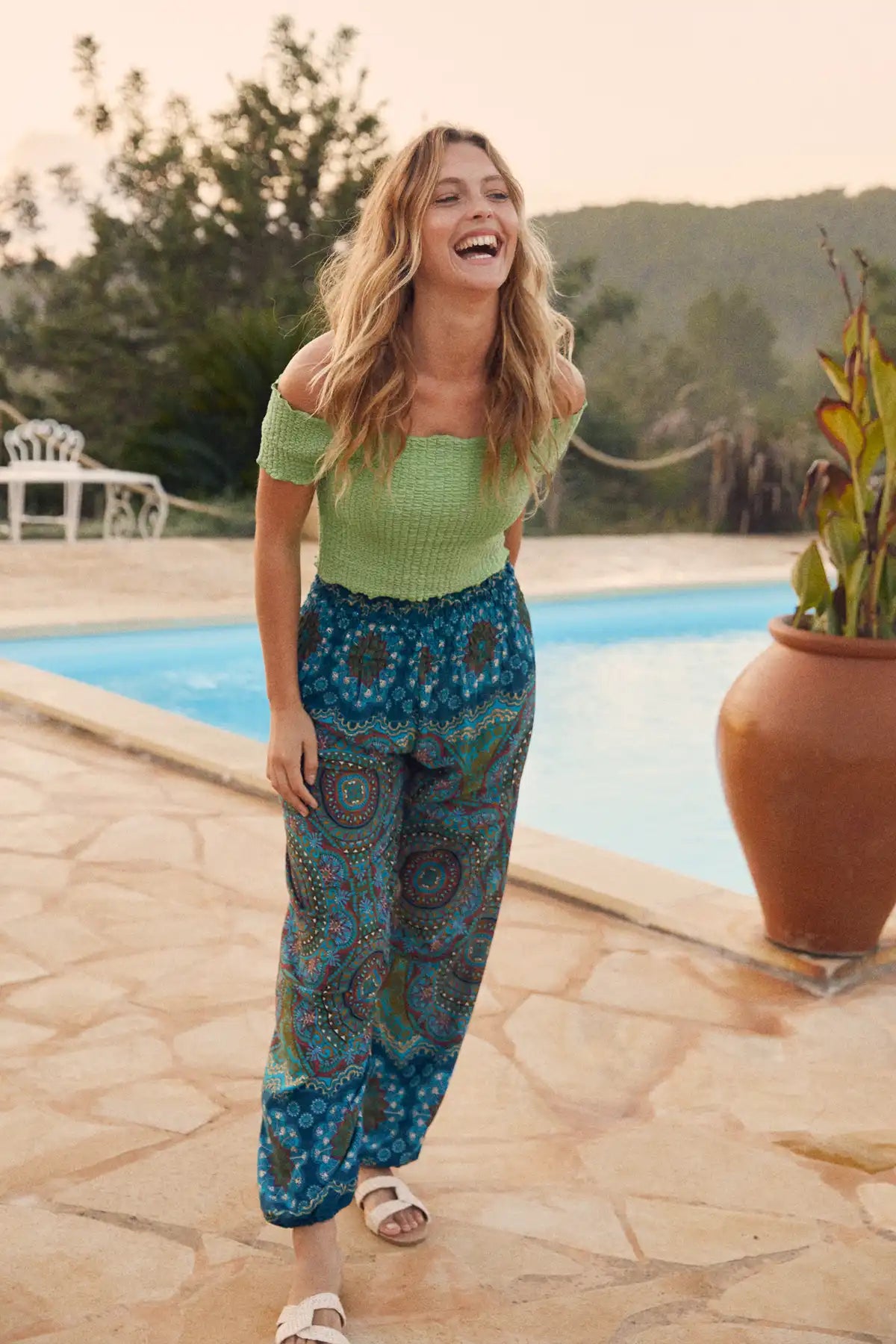
Inhaltsverzeichnis
6 sustainability tips that we can learn from our grandparents
The everyday lives of our grandparents and great-grandparents were probably very different from ours today. Not to mention economic crises and world wars, they simply lived in a different era. In many rural areas, running water and electricity were not a given, and refrigerators and cars were considered luxuries.
They didn't have the ability to quickly heat up a meal in the microwave or ask Google Maps for directions. Some modern inventions and achievements are great, and in many areas of life, we certainly have things much easier and more straightforward today. Nevertheless, we can learn a lot from older generations, especially when it comes to how we can live sustainably today.
So here are a few things our grandparents and great-grandparents did to live a simpler life – which, by the way, was often more environmentally friendly too.
1. Cook yourself and eat at home
Eating out has now become normal for many people. Especially in big cities, it's become common practice to regularly eat in a café or restaurant, morning, noon, or evening. This is often easier, but also more expensive. Moreover, cooking is becoming a skill that fewer and fewer people master. As a result, children in particular, but also an increasing number of adults, often don't know exactly where their food comes from or how it was prepared.
Being able to prepare your own meals not only makes you more self-sufficient and independent, but also leads to healthier eating. It also saves you money and is more environmentally friendly: When you cook from scratch and with fresh ingredients, you use less packaging and waste less food.
2. Repair instead of throwing away
Of course, products are produced differently today than they used to be. Due to the strategy of product obsolescence, objects break down more quickly and don't last very long. Whether it's fashion, cars, electrical appliances, or household appliances – things no longer work or eventually become outdated.
This leads to us spending a lot of money on things that can actually be repaired or modified to suit our needs.
Our grandparents knew how to mend clothes or repair broken things. Or at least where to go to get them repaired. I want to remind myself more often not to simply throw things away as soon as they no longer function perfectly. Instead, mend them myself or take them to be repaired.
3. Bring your own lunch
When did it actually become uncool to bring your own lunchbox? Back in school, our Tupperware was not only stylish but also environmentally friendly.
Instead of stopping by the nearest supermarket or bakery at lunchtime, it makes more sense to prepare sandwiches at home or pack up leftovers from yesterday's dinner.
For our grandparents, eating out was a special occasion and not something you did every day.
4. Shop smart
In the past, it was important to be able to make smart purchasing decisions due to the difficult living conditions.If you couldn't afford it, you didn't buy it. And you basically only bought what you needed. Things are quite different in today's consumer society.
It's more sensible and sustainable to do a big shop once a week and then actually use up everything. Before you go shopping, consider what you need and reduce impulse buying.
5. Clean out
Less stuff means less worry... That doesn't mean you should own as little as possible or eliminate modern gadgets. But saying "no" to certain things leads to less waste and makes life more organized.
Huge closets filled with tons of clothes you never wear and pantries filled with food you never eat were alien worlds to our grandparents. These things only lead to more spending, more maintenance, and more cleaning.
As I said, it's not about minimizing all your possessions overnight. But doing a thorough clean-out and throwing away or giving away useless stuff has a huge impact on the environment and your own well-being.
6. Rethink disposable items
Ziplock and freezer bags didn't exist until the 1960s. Our ancestors therefore stored food in glass jars. After they had used up the food, they washed the jars and reused them. We, too, can use reusable containers instead of disposable plastic bags. This alone can reduce a lot of (plastic) waste.
If you would like to learn more about sustainable living, mindfulness or healthy nutrition, take a look here over.
What tips do you have for those who want to live sustainably?





























Leave a comment
This site is protected by hCaptcha and the hCaptcha Privacy Policy and Terms of Service apply.